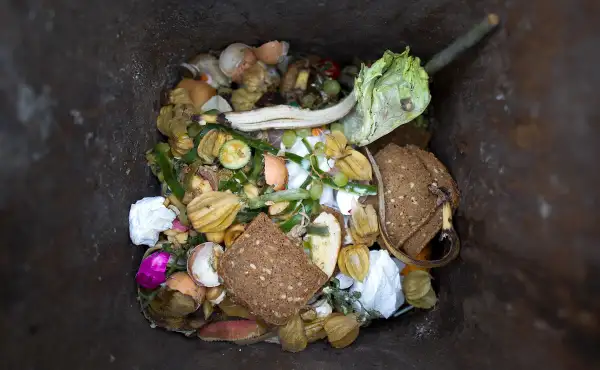Confusing Labels on Groceries Are Costing Us Thousands Every Year

You may be dumping the equivalent of $1,800 into the trash every year. That's how much the average family of four spends on food that is never eaten and winds up in the garbage, according to the Natural Resources Defense Council.
And why is it that people throw away so much uneaten food? It's not just because we hate leftovers.
Much of the blame for the extraordinary amount of food waste in the U.S. can be directed at confusing labels on groceries. Consumers and environmental advocacy groups have complained for years about ambivalent and overly complicated expiration dates and varied messages on meat and other groceries like "sell by," "use by," "freshest by," and "best by."
The Wall Street Journal just reported that both houses of Congress have introduced bills to streamline and simplify food labels to help limit food waste in the U.S. Depending on what (if anything) is passed into law, groceries may soon be labeled with only two phrases — "use by" and "best by."
This could help you avoid throwing away food unnecessarily. Eliminating the "sell by" label — which is intended for stores, not shoppers, and doesn't give consumers a clue about when food actually goes bad — could be especially helpful.
But it's hardly a done deal that the federal government is going to take action, nor is it clear how much less food would be wasted if a law passed. Right now, food label dates are not federally regulated — which is itself confusing, because many people think the various messages on groceries are required by law.
The USDA's Food Safety and Inspection Service says that confusion over food labeling results in "consumers discarding wholesome food." To reduce food waste, "It is important that consumers understand that the dates applied to food are for quality and not for safety," the agency says. "Food products are safe to consume past the date on the label, and regardless of the date, consumers should evaluate the quality of the food product prior to its consumption."
In other words, before throwing anything away, take a good look at the food and use the sniff test (and then, cross your fingers and hope you don't get sick). The agency also says that food can be safely donated to charities even if they've passed the dates labeled on them, explaining: "The quality of perishable products may deteriorate after the date passes but the products should still be wholesome if not exhibiting signs of spoilage."
As for federal regulators finally being empowered to step in and institute food dates that result in less waste, Congress has tried to simplify grocery labels in the past. Money reported back in 2016 that Congress was attempting to pass the Food Date Labeling Act so that phrasing on groceries finally makes sense. Three years later, advocates are still pushing for a new version of the Food Date Labeling Act to standardize and simplify grocery labels.
In the meantime, entrepreneurs, food pantries, and restaurants are trying to simultaneously cut down on food waste and feed the hungry nationally through a wide range of programs. For example, some celebrity chefs have been experimenting with incorporating would-be food waste such as vegetable scraps into meals.
But small initiatives obviously are limited in their impact. If lawmakers can find out a way to put sensible, easily-understandable labels on food, and if Congress can actually pass a law to make such labels mandatory — both very big "ifs" — then we have a prayer for massively cutting back on food waste and saving people significant money.
Convincing people that they should eat their leftovers could prove to be an even harder nut to crack.
